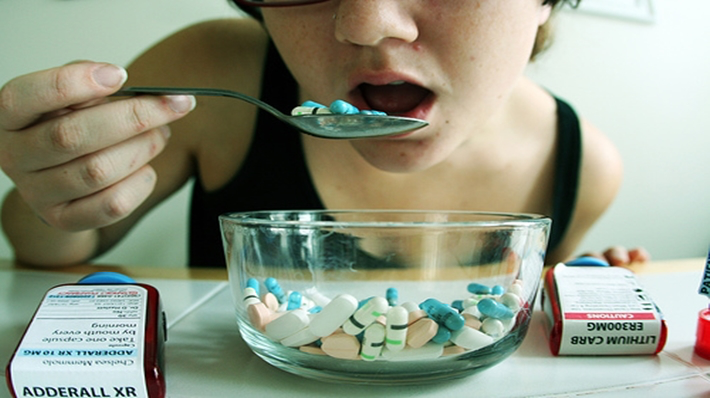Do emotionally orphaned children turn to drugs to fill the void?  If you haven’t got time for your child’s pain, make the time; You can pay (attention) now, or you can pay (the consequences) later. What is the real appeal of heroin and cocaine, or their lesser evil counterparts, alcohol/marijuana and amphetamines/speed? Are they a way for teens and young adults to escape or merely cope with their lives or is there something else going on? When young children and pre-teens step out into the world and fall on their face, they look back to their parents to be comforted by a mom and pumped up by a dad. If the connection is done in the right way that is neither too overprotective/indulgent, critical/abusive, absent/neglectful, but is instead guiding/supportive, that child will internalize that response from what psychologists refer to as a “caring surround” and call upon it when they hit a wall later on in life. If that child didn’t have a supportive/guiding relationship with their mom and dad and instead had either the overprotective/indulgent, critical/abusive or absent/neglectful one because their parents were divorced, self-involved, or so in need of the comforting and pumping up themselves, the child has nothing to internalize to buttress its ego against the slings and arrows and raging hormones of everyday life as an adolescent. What if you’re an adolescent or even a pre-adolescent stepping out into the world without an internalized protective safety and resilience net? (Think of it as analogous to going out into a blazing hot sun without sunblock). What if in the midst of your uncertainty you discover uppers like cocaine or prescribed stimulants that you can borrow from friends that make you feel stronger and more confident than you actually feel? And what if like Icarus you’re flying too close to the sun on those uppers and your wax wings begin to melt throwing you into a free falling panic and you discover downers like heroin, alcohol, marijuana or prescribed downers like Xanax to ease the fall? When vulnerable adolescents (vs. the naturally resilient and determined to not let a lousy childhood deter them) who may not have the optimal connections with parents discover that they can medicate themselves and create those “parent-like” connections with drugs to pump them up at one end and soothe them at the other, they have suddenly created the emotional family they never had. Initially they feel they get to control those connections squeezing out dollops of false confidence and false comfort from those drugs upon demand, not unlike what they were able to do in the womb when their physiological wish was their mother’s command as she satisfied those needs across her placenta. One reason the drug problem is so difficult to solve is because children who have discovered this new “family” where drugs take the place of real comfort and encouragement and where they get to feel “whole” are reluctant to go back to feeling like the emotional and vulnerable orphan they were when their pain was never responded to or made worse by abuse. Their lives feel complete as long as their drugs are available. And when they can’t get those drugs they go into withdrawal and go from complete to brittle in the blink of an eye. How can we break the powerful attachment between teens and drugs? That fit between distress and the drug that takes it away are very strong. It’s an uphill struggle fraught with frustration on both sides. The one thing we can offer that drugs cannot is understanding the pain our children feel and a willingness to feel it with them so they don’t feel so alone in it. We may not be able to remove the intimidation of an overwhelming world, but we can reduce their aloneness in it. To these emotional orphans who have substituted drugs for the caring they never had, we can offer understanding and hope. In order to do this, we need to create the feeling in each addicted child’s mind that someone really cares. That there is real love and deep concern for them from another human being. This will not be easy. Often what teens need most, they want least and will fight against them. We as parents need to persevere and realize that “teens doth protest” too much when it comes to receiving guidance from us. Parents need to pick those moments when teens seek their input—and they will—rather than forcing unsolicited advice down their throats when they least want it. A caveat to keep in mind, the more you offer unsolicited advice to pre-teens and teenagers, the less they will seek input from you when they really need it. It’s less important what you tell your children then what they tell you. And they won’t tell you anything if they experience you as ever primed to push unwanted input on them. Patience and perseverance are not easy to find in a too-busy-to-listen world, but the more parents can summon it up in interacting with their children, the greater the protective benefit later on. And the benefit? One night when that child needs comforting or boosting, maybe they’ll call you or turn inside and hear your comforting and encouraging voice instead of calling their drug dealer. Published on August 31, 2014 by Mark Goulston, M.D., F.A.P.A. in Just Listen
If you haven’t got time for your child’s pain, make the time; You can pay (attention) now, or you can pay (the consequences) later. What is the real appeal of heroin and cocaine, or their lesser evil counterparts, alcohol/marijuana and amphetamines/speed? Are they a way for teens and young adults to escape or merely cope with their lives or is there something else going on? When young children and pre-teens step out into the world and fall on their face, they look back to their parents to be comforted by a mom and pumped up by a dad. If the connection is done in the right way that is neither too overprotective/indulgent, critical/abusive, absent/neglectful, but is instead guiding/supportive, that child will internalize that response from what psychologists refer to as a “caring surround” and call upon it when they hit a wall later on in life. If that child didn’t have a supportive/guiding relationship with their mom and dad and instead had either the overprotective/indulgent, critical/abusive or absent/neglectful one because their parents were divorced, self-involved, or so in need of the comforting and pumping up themselves, the child has nothing to internalize to buttress its ego against the slings and arrows and raging hormones of everyday life as an adolescent. What if you’re an adolescent or even a pre-adolescent stepping out into the world without an internalized protective safety and resilience net? (Think of it as analogous to going out into a blazing hot sun without sunblock). What if in the midst of your uncertainty you discover uppers like cocaine or prescribed stimulants that you can borrow from friends that make you feel stronger and more confident than you actually feel? And what if like Icarus you’re flying too close to the sun on those uppers and your wax wings begin to melt throwing you into a free falling panic and you discover downers like heroin, alcohol, marijuana or prescribed downers like Xanax to ease the fall? When vulnerable adolescents (vs. the naturally resilient and determined to not let a lousy childhood deter them) who may not have the optimal connections with parents discover that they can medicate themselves and create those “parent-like” connections with drugs to pump them up at one end and soothe them at the other, they have suddenly created the emotional family they never had. Initially they feel they get to control those connections squeezing out dollops of false confidence and false comfort from those drugs upon demand, not unlike what they were able to do in the womb when their physiological wish was their mother’s command as she satisfied those needs across her placenta. One reason the drug problem is so difficult to solve is because children who have discovered this new “family” where drugs take the place of real comfort and encouragement and where they get to feel “whole” are reluctant to go back to feeling like the emotional and vulnerable orphan they were when their pain was never responded to or made worse by abuse. Their lives feel complete as long as their drugs are available. And when they can’t get those drugs they go into withdrawal and go from complete to brittle in the blink of an eye. How can we break the powerful attachment between teens and drugs? That fit between distress and the drug that takes it away are very strong. It’s an uphill struggle fraught with frustration on both sides. The one thing we can offer that drugs cannot is understanding the pain our children feel and a willingness to feel it with them so they don’t feel so alone in it. We may not be able to remove the intimidation of an overwhelming world, but we can reduce their aloneness in it. To these emotional orphans who have substituted drugs for the caring they never had, we can offer understanding and hope. In order to do this, we need to create the feeling in each addicted child’s mind that someone really cares. That there is real love and deep concern for them from another human being. This will not be easy. Often what teens need most, they want least and will fight against them. We as parents need to persevere and realize that “teens doth protest” too much when it comes to receiving guidance from us. Parents need to pick those moments when teens seek their input—and they will—rather than forcing unsolicited advice down their throats when they least want it. A caveat to keep in mind, the more you offer unsolicited advice to pre-teens and teenagers, the less they will seek input from you when they really need it. It’s less important what you tell your children then what they tell you. And they won’t tell you anything if they experience you as ever primed to push unwanted input on them. Patience and perseverance are not easy to find in a too-busy-to-listen world, but the more parents can summon it up in interacting with their children, the greater the protective benefit later on. And the benefit? One night when that child needs comforting or boosting, maybe they’ll call you or turn inside and hear your comforting and encouraging voice instead of calling their drug dealer. Published on August 31, 2014 by Mark Goulston, M.D., F.A.P.A. in Just Listen
Drugs as the New Parents




